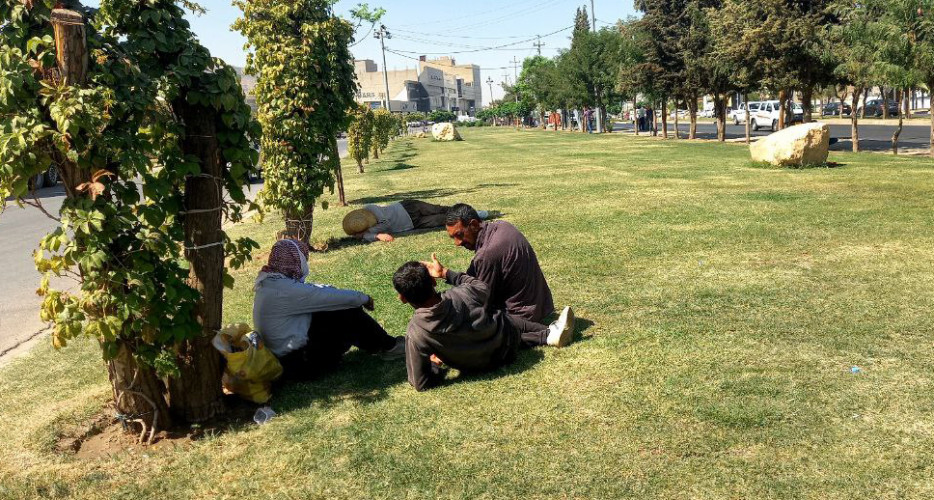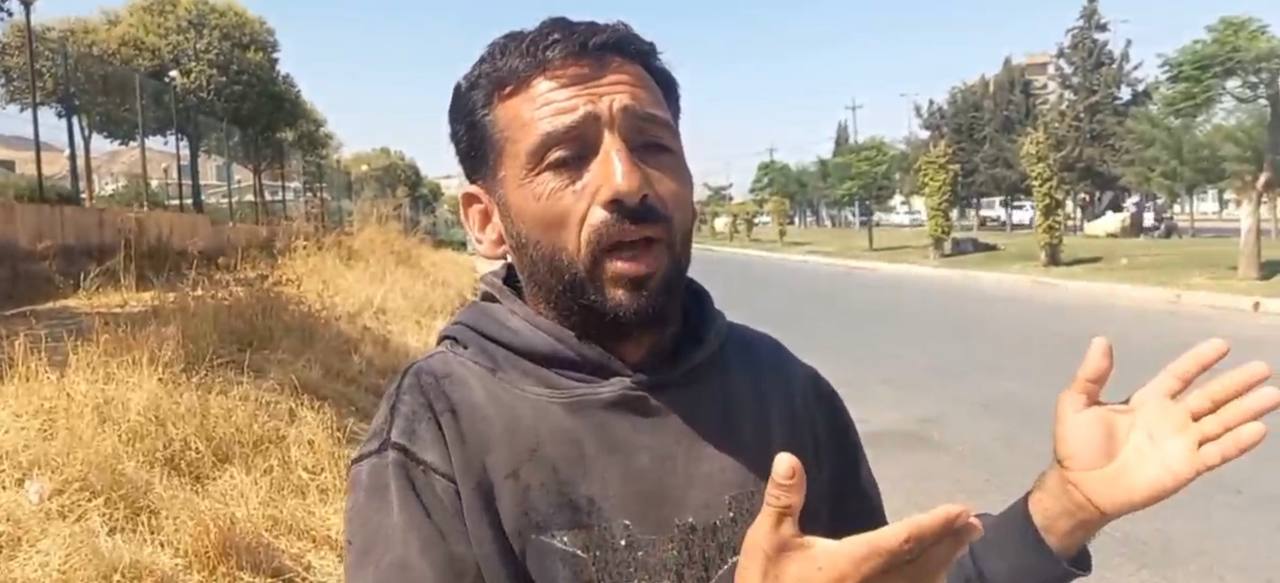
Peregraf- Ammar Aziz
Nabil Saifadin, a refugee from Syrian Kurdistan, has not received aid from any humanitarian organization for the past two years. He must use his meager wages earned as a day laborer to feed his family.
Like many other refugees living in Duhok governorate, his dream is to be resettled in a European country. Until then he and his family will continue living in a tent in a displacement camp, receiving progressively less attention and aid as the years pass.
"For two years, the UN has cut off the monthly food of me and hundreds of other families and we do not know the reason," Saifadin, who arrived in the Kurdistan Region from Qamishlo nine years ago, told Peregraf.
He currently works in construction in Duhok city. He typically gets a job two or three times a week and earns between 10,000 and 15,000 Iraqi dinars ($6.95 and $10.40) each time.
The 35-year-old has four children, one of whom has asthma. His wife is also ill. She spends most days in bed following spinal fusion surgery.
"We only want to be helped to go Europe because we cannot go back to our homeland and our area is not safe," Saifadin said.

Nabil Saifadin, a refugee from Syrian Kurdistan.
There are approximately 240,000 refugees from Syria living in the Kurdistan Region. Many of them live in ten displacement camps located in Erbil, Duhok, and Sulaimaniyah governorates.
Pir Dian Jaafar, director of the Kurdistan Regional Government’s (KRG) Refugee and Displacement Office in Duhok, told Peregraf that humanitarian groups have largely wrapped up their work.
"Now 70 percent of their contracts have ended, which has reduced our cooperation to a significant extent. It has certainly had a significant impact on the situation in refugees’ lives," Jaafar said.
For example, just 20 percent of refugees in the governorate currently receive food aid from the World Food Programme, based on a contract signed in July, he said.
According to official KRG statistics, it costs $2 million per day and more than $800 million per year to fully fund services for displaced persons living in the Kurdistan Region.
During the war against Islamic State (ISIS), at least 220 humanitarian groups, including UN, international, and local agencies worked with refugees in the Kurdistan Region. But as that emergency recedes, that aid is also disappearing.
KRG officials say that Iraq’s federal government must step in, particularly in terms of providing food rations.
"It is a great challenge to be able to manage all refugees and displaced persons. The only solution is for the Iraqi government to help," Jafaar said, adding that the situation in Syria is not stable and so returns are not possible.
Ahmed Khalke, from the Syrian Kurdish town of Derka Hamkoya, has lived in the Domiz camp for 12 years.
"I work daily…and what I think is worse is that we are grateful for any work we can get because the work has decreased a lot," Khalke said.
Askandar Mohammed Amin, director of the federal refugee and displacement office in Duhok, told Peregraf that the government was able to issue food cartons, cleaning supplies, and other basic equipment in 2020 and 2021, but it has not done so this year due to the ongoing budget dispute in Baghdad.
Some aid has been given to internally displaced persons (IDPs), but refugees have been deprioritized.
"The contracts for the work of the [humanitarian] organizations in all of Kurdistan have ended," Amin said. "Just four or five organizations still work in Duhok governorate."
Ahmed Ali, a 43-year-old refugee from Syria living in Duhok, told Peregraf that UN and humanitarian agencies used to provide them with many of their needs.
"Now we don't get anything. Last year, I was given 480,000 Iraqi dinars last year alone to buy oil, but that is it for the past two years," Ali said.
"Our lives have been so difficult and hard, I can't even describe it," he added.